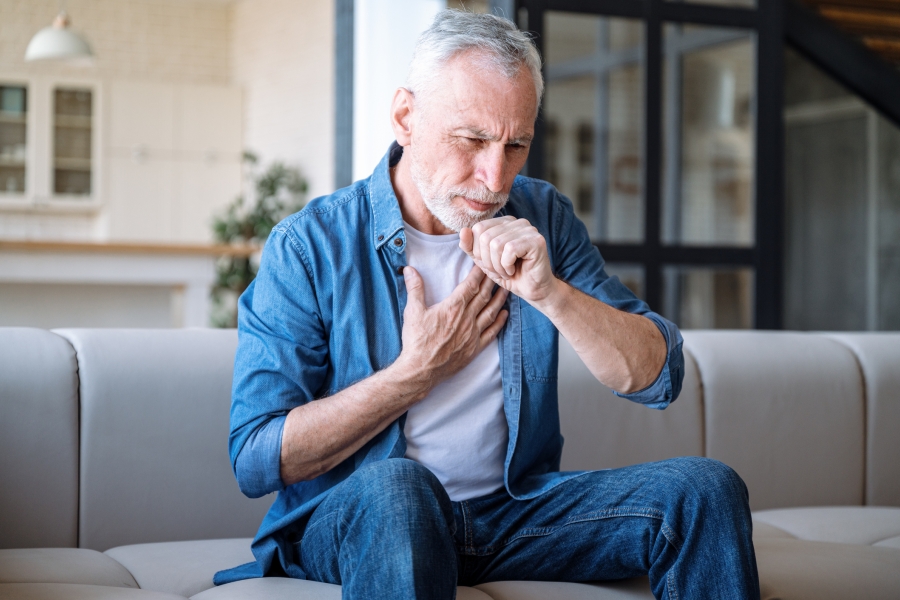The novel 2019 coronavirus, COVID-19, has the world on high alert about how to avoid contracting the virus. If you're someone living with a health condition, such as obstructive sleep apnea, it's natural to worry about being more susceptible.
If you're treating sleep apnea with continuous positive airway pressure therapy (CPAP), you know how important it is to manage your condition and help you sleep. But anxiety about the virus is causing new sleep problems for some people. You may worry that using a CPAP comes with greater risks for a contagious respiratory virus like COVID-19.
If you have concerns, talking with your doctor is one of the best ways to reduce anxiety. Although health officials are still learning about the virus and the best ways to prevent and treat it, there's a lot we do know. Here are common questions I'm getting about the impact of COVID-19 on sleep apnea and a CPAP.
Does having sleep apnea make me more likely to get the coronavirus?
There's no evidence that sleep apnea on its own puts you at higher risk for contracting COVID-19. However, risk factors for severe illness may include age (65 and older) and underlying medical conditions, especially if they're not well controlled, such as:
- Chronic lung disease or moderate-to-severe asthma
- Serious heart conditions
- Severe obesity — BMI of 40 or higher
- Compromised immune system
- Diabetes
- Chronic kidney disease
- Liver disease
Using a CPAP to treat sleep apnea will help you get the sleep your body needs. Studies show lack of sleep affects your immune system, making you more likely to get sick. Getting 7-8 hours of sleep every night helps strengthen your immune system and fight off infection.
Should I stop using my CPAP if I have a mild cough?
You should continue using your CPAP as directed. The CPAP helps you get the sleep you need to boost your immune system.
If I have COVID-19, will using a CPAP spread the disease deeper into my lungs?
There's no evidence a CPAP will drive the virus into the lungs.
If I have the coronavirus, is there a risk using my CPAP will infect others around me?
The virus spreads from person-to-person through respiratory droplets produced when someone coughs, sneezes or talks. A CPAP can spread the virus through droplets from leaks around the mask, or from the exhalation port. If you’re infected, you should isolate yourself from others in your home if possible.
The virus can remain on surfaces, too, so it’s important to disinfect high-touch surfaces and keep a clean environment.
What if I've run out of or can't get distilled water for my CPAP?
You can also use tap or bottled water for your CPAP, but it should be boiled. Distilled water is preferred because most of the minerals that can build up in the machine's humidifier have been removed.
If it's not available, you'll need to clean the humidifier thoroughly and more often to prevent deposits from building up.
Should I clean my CPAP machine, mask and accessories differently if I have the virus?
Follow the manufacturer's instructions for cleaning your device. The Centers for Disease Control recommends you clean and disinfect your equipment regularly using soap and water. Do not use chemicals such as bleach.
Machines marketed to clean CPAP devices and equipment using UV light or ozone haven't been proven to be effective. They also aren't approved by the U.S. Food and Drug Administration.
If you have COVID-19, you should clean the equipment daily, but there's no need to replace CPAP accessories more often.
Should I get the COVID vaccine if I have sleep apnea?
Yes. The best protection from COVID-19 is getting the vaccine. The vaccine is recommended for virtually everyone, especially people who are at higher risk for COVID-19 due to conditions like sleep apnea or asthma. As soon as you have the opportunity, you should get the vaccine.
What if I have more questions?
Staying in touch with your doctor and your Temple care team is always important. Reach out to them with any questions or concerns you have. Helping you stay healthy is our priority.
